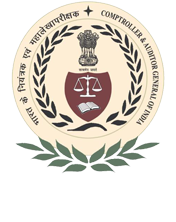Audit Reports

Indirect Tax
Report No. 21 of 2014 - Performance Audit of Special Economic Zones SEZs of Union Government, Department of Revenue - Indirect Taxes, Customs
Overview
A Special Economic Zone is a geographical region within a Nation-State in which a distinct legal frame work provides for more liberal economic policies and governance arrangements than prevail in the country at large. The geographical areas thus notified under the SEZ Act, were declared to be outside the normal customs territory of India.
To establish a new regulatory framework, Government of India announced a comprehensive SEZ policy in April 2000 as a part of the EXIM Policy, which was followed by a dedicated SEZs Act in February 2006. This Act aimed to promote economic growth and development in the form of greater economic activity, promotion of exports, investments and creation of employment and infrastructure. The objectives were to be achieved through incentivizing the SEZ activities in the form of income tax holidays, various exemptions from several indirect taxes and other benefits. For success of this Act, DoC, DoR, CBEC, CBDT, State Governments, Banks etc were required to act in tandem.
Post enactment of the Act, the country had witnessed several protests resisting land acquisition initiatives for SEZs, pointing towards a need for their social evaluation in addition to the defined objectives. Though a number of deficiencies in administering indirect taxes were brought out in the Report No. 6 of 2008 of the C&AG of India, besides several audit findings in the subsequent years, on inadmissible concessions given to SEZs; a comprehensive performance assessment of SEZs was impending. Considering the magnitude of exemptions availed by SEZs, it was imperative to assess their performance vis-a-vis the duty forgone.
Download Audit Report
-
Report No. 21 of 2014 - Full Report
 (1.19 MB)
Download
(1.19 MB)
Download
-
Index
 (0.05 MB)
Download
(0.05 MB)
Download
-
Preface
 (0.06 MB)
Download
(0.06 MB)
Download
-
Executive Summary
 (0.12 MB)
Download
(0.12 MB)
Download
-
Recommendations
 (0.09 MB)
Download
(0.09 MB)
Download
-
Chapter 1 - Introduction
 (0.18 MB)
Download
(0.18 MB)
Download
-
Chapter 2 - Performance of SEZs and Socio Economic Impact
 (0.39 MB)
Download
(0.39 MB)
Download
-
Chapter 3 - Growth of SEZs
 (0.24 MB)
Download
(0.24 MB)
Download
-
Chapter 4 - Land allotment and utilisation
 (0.22 MB)
Download
(0.22 MB)
Download
-
Chapter 5 - Tax Administration
 (0.24 MB)
Download
(0.24 MB)
Download
-
Chapter 6 - Monitoring, evaluation and Control
 (0.29 MB)
Download
(0.29 MB)
Download
-
Appendices
 (0.23 MB)
Download
(0.23 MB)
Download
-
Glossary
 (0.09 MB)
Download
(0.09 MB)
Download

